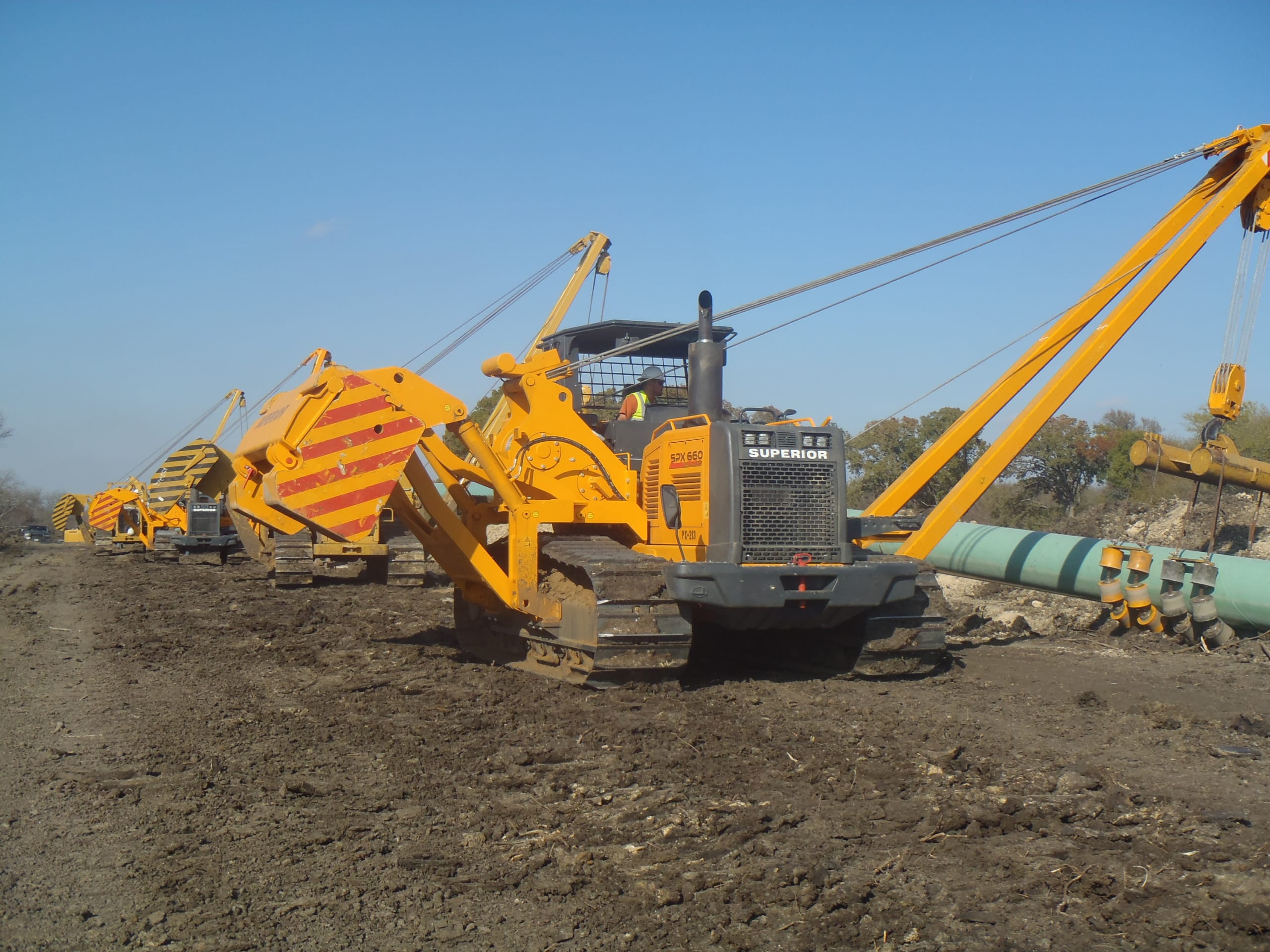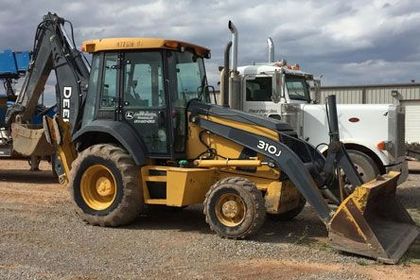Superior Rentals midland: benefits of regional expertise
Wiki Article
A Comprehensive Overview to the Various Kinds Of Oil Field Equipment and Pipeline Equipment Available
The oil and gas market counts heavily on specific equipment for efficient extraction and transport. Numerous types of equipment, from piercing rigs to storage containers, play vital roles in this complicated procedure. Each tool offers distinct functions that add to overall operational success. Comprehending these parts is essential for anybody included in the market. As the market progresses, so too do the innovations that support it. What improvements are on the perspective?
Drilling Rigs: The Foundation of Oil Exploration
Drilling rigs act as the vital machinery in the domain of oil expedition, allowing companies to gain access to hydrocarbon books hidden deep underneath the Earth's surface area. These rigs come in different kinds, including land rigs, offshore rigs, and mobile systems, each designed to run in details settings. Equipped with innovative technology, drilling rigs can pass through geological formations with precision, making certain effective source extraction. The architectural stability and operational capabilities of these rigs are vital, as they need to hold up against severe problems and substantial pressures. In addition, the selection of an exploration gear impacts the overall project cost and timeline, making it an essential factor to consider for oil companies seeking to maximize their exploration efforts and maximize productivity in their operations.Pumps: Necessary for Liquid Movement
In the oil extraction process, the role of pumps is significant, facilitating the activity of fluids throughout different stages of production. Pumps are vital for delivering unrefined oil, water, and various other liquids from underground tanks to the surface area and after that with pipes to refineries. They come in various types, consisting of centrifugal, positive displacement, and completely submersible pumps, each serving specific objectives based upon the liquid features and operational needs. Centrifugal pumps are generally made use of for their effectiveness in high-flow applications, while positive variation pumps master managing viscous liquids. The selection of pump effects overall performance, functional security, and upkeep prices. Appropriate selection and maintenance of pumps are vital for optimizing manufacturing and lessening downtime in oil field procedures.Valves: Managing Circulation and Pressure

Valves play a crucial role in handling the circulation and pressure of liquids within oil fields and pipes. Numerous kinds of shutoffs offer distinct applications, each developed to accomplish specific functions essential for reliable operation - Superior Oilfield Rentals oilfield. Recognizing the characteristics and uses of these valves is necessary for maximizing system efficiency and security
Kinds of Valves
Crucial components in oil field operations, valves play a vital duty in regulating the circulation and stress of fluids within pipes and equipment. Different sorts of valves are utilized to satisfy the varied demands of oil and gas production. Common types consist of gateway valves, which provide a straight-line flow and marginal stress decline; globe valves, understood for their throttling abilities; and round shutoffs, recognized for their fast on/off control. Additionally, check shutoffs stop heartburn, while butterfly shutoffs provide a lightweight option for controling flow. Each valve type is developed with details materials and arrangements to stand up to the severe conditions typically discovered in oil fields, guaranteeing integrity and performance in operations. Understanding these types is critical for effective system monitoring.Valve Applications and Features
While different sorts of valves offer unique objectives, their primary applications focus on controlling circulation and stress within oil and gas systems. Shutoffs such as entrance, globe, and sphere valves regulate fluid motion, guaranteeing peak efficiency and security. Gateway valves are frequently utilized for on/off control, providing minimal flow resistance. Globe shutoffs, on the other hand, offer accurate circulation regulation, making them appropriate for throttling applications. Round shutoffs are preferred for their quick operation and limited sealing capacities. Furthermore, pressure relief shutoffs are crucial for avoiding system overpressure, protecting devices integrity. Generally, the suitable option and application of valves improve functional performance, making sure the trustworthy transport of oil and gas through pipelines and handling centers.Compressors: Enhancing Gas Transportation
Compressors play a vital function in the reliable transport of gas, ensuring that it moves smoothly via pipelines over lengthy distances. These devices boost the pressure of gas, permitting it to get over rubbing and altitude adjustments within the pipeline system. Furthermore, compressors promote the balancing of supply and need, suiting fluctuations in consumption and production prices. Numerous kinds of compressors are used in the sector, including centrifugal, reciprocating, and rotary screw compressors, each offering distinct benefits based upon the operational needs. Routine maintenance of these compressors is necessary to optimize performance and reduce downtime, eventually adding to a dependable gas transport network. Their crucial function emphasizes the importance of compressors in the overall oil and gas facilities.Storage Tanks: Safe and Effective Fluid Monitoring
Effective transportation of gas relies on different support group, among which is the correct monitoring of storage tanks. These containers play a vital function in securely containing liquids, making certain that functional effectiveness is kept while decreasing ecological threats. Created from sturdy products, they are designed to stand up to high pressures and corrosive aspects. Correctly sized and strategically situated, storage space tanks help with the smooth flow of gas and other fluids, stopping traffic jams in supply chains. Regular maintenance and surveillance are vital to discover leaks or architectural concerns, advertising safety and conformity with regulative standards. Eventually, the effective monitoring of storage tanks is crucial for the total honesty and integrity why not check here of the oil and gas market's liquid handling systems.
Pipeline Solutions: Infrastructure for Transportation
Pipeline systems act as the foundation of the oil and gas market, assisting in the effective transportation of hydrocarbons over large distances. These systems consist of different elements, consisting of pipelines, valves, pumps, and compressors, all meticulously made to guarantee seamless circulation. The products made use of in pipeline construction, frequently steel or high-density polyethylene, are picked for durability and resistance to rust. Pipeline networks can extend across land and water, attaching manufacturing websites to refineries and distribution. Additionally, advanced technology enables real-time monitoring of flow prices and pressure levels, enhancing operational effectiveness. The critical placement of these pipelines reduces environmental effect while maximizing resource access, therefore playing a crucial role in meeting power demands worldwide.Safety Equipment: Ensuring Worker and Environmental Management
The operation of pipeline systems, while vital for energy transportation, likewise provides substantial security obstacles for employees and the atmosphere. Security tools plays a substantial duty in mitigating these threats. Personal protective equipment (PPE) such as helmets, handwear covers, and non-slip footwear safeguards workers from physical threats. In addition, gas discovery systems keep an eye on for leaks, making certain that damaging materials do not position a danger to workers or the bordering ecological community. Emergency situation closure systems are important for promptly stopping operations throughout a dilemma, stopping potential calamities. Spill control materials, including absorbents and obstacles, are basic for lessening ecological effect. On the whole, purchasing all-inclusive safety tools is vital for preserving functional honesty and protecting both employees and the atmosphere in the oil and gas industry.
Regularly Asked Questions
Exactly how Do I Choose the Right Oil Field Equipment for My Project?
Choosing the right oil area devices entails evaluating task requirements, budget plan restrictions, and operational requirements. Think about click site factors such as devices integrity, compatibility with existing systems, and the supplier's reputation to ensure peak efficiency and safety.What Are the Upkeep Requirements for Oil Field Equipment?
Upkeep demands for oil field tools consist of normal inspections, lubrication, and prompt fixings. Operators needs to also abide by producer guidelines, screen efficiency metrics, and warranty compliance with safety and security regulations to enhance longevity and effectiveness.
Exactly How Can I Make Sure Compliance With Environmental Rules?
To ensure conformity with ecological regulations, companies need to conduct routine audits, apply best techniques, purchase training, keep proper documentation, and stay upgraded on regulations (Superior Rentals midland). Partnership with ecological firms can additionally enhance adherence to regulationsWhat Is the Ordinary Life-span of Pipeline Equipment?
The typical life expectancy of pipeline devices normally varies from 20 to 50 years, relying on variables such as worldly top quality, like this ecological conditions, and maintenance techniques. Routine evaluations can greatly affect durability and operational performance.Exactly how Do I Securely Deliver Oil Field Equipment to Remote Locations?
Delivering oil field equipment to remote areas calls for mindful planning, consisting of route evaluation, safeguarding licenses, utilizing ideal automobiles, and guaranteeing security protocols are followed. Correct training and communication amongst staffs are important for successful transportation.Report this wiki page